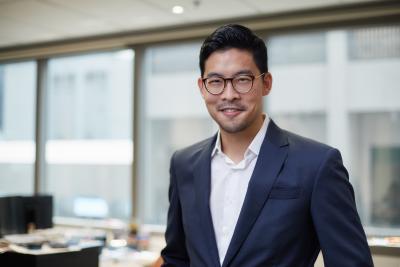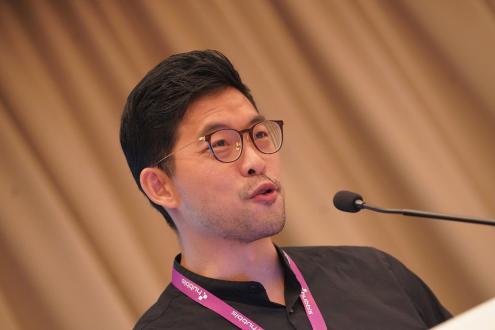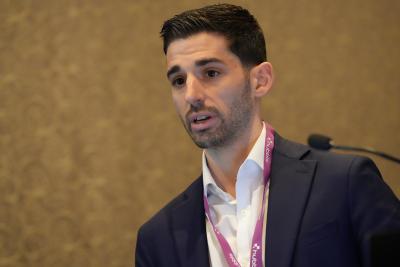Navigating Challenging and Uncertain Global Market Conditions with Private Credit

Jun 15, 2023
David Z Wang, Co-Founder and Group CEO of Helicap offered delegates an interesting talk at the Hubbis Independent Wealth Management Forum in Singapore on May 10, focusing their attention on private credit strategies for uncertain market conditions, and outlining some key trends he is witnessing in the market and that the firm anticipates in the foreseeable future.
Helicap is a five-year-old Singapore-based firm that promotes itself as one of Asia’s fastest-growing FinTech platforms. It specialises in private investments in Southeast Asia, helping to facilitate private funding for non-bank institutions, SMEs, and start-up companies to a growing pool of accredited and institutional investors, via its regulated subsidiaries.
Strong growth from a robust proposition
Each investment is curated with the help of the investment team supported by Helicap Group’s proprietary risk management framework and delivered to investors via a digitised investment experience. Helicap’s fund management subsidiary registered with the MAS manages a fund through which it invests in these products. The profile of qualified investors include institutions, private clients accessed through brokers and private banks, and family offices.
Helicap has completed a cumulative deal volume of more than USD200 million for small, high-growth businesses in Southeast Asia since inception through about 100 deals. The group today employs over 20 professionals in total.
Seeing the opportunities
Wang told delegates that in his early working life, he had worked in blue chip investment banks and afterwhich, had invested early stage in a small company and later sold it, providing him with the capital to venture out fully on his own. He invested a significant amount of his personal net worth in Helicap, and thus far, Helicap has raised millions in equity, mainly from three investors, all financial, one Japanese, one Singaporean, and one French.
Working with the professionals
He explained that their investor outreach strategy is predominantly B2B, not directly with the clients. At the event, he took the opportunity to introduce private credit as an asset class to independent wealth and asset managers.
Armed with a concise slideshow, Wang set the scene for the firm and the private credit space, giving a macro overview and explaining that the S&P 500 is still very expensive at around 25x PE ratio whereas historical fair value is nearer to 20x, and that private credit as an asset class has historically outperformed almost all other assets since 2022, and given the current economic cycle, senior debt may be most suitable for the current climate.
Fertile conditions for a great (PC) vintage
He explained that he believes that a recession will mean that earnings multiples will fall and that they do not see recovery around the corner. “In this type of contraction environment, certain strategies would actually work very well - senior debt, general credit, distressed credit, and structured debt,” he said. “And the investor is able to have extra layers of alpha, be it call options, be it security packages, and so forth.”
Private credit AUM in Asia Pacific is expanding rapidly, he reported, ballooning from less than USD5 billion in 2010 to approaching USD90 billion.
Out with the old, in with the new
He then highlighted KKR’s proposed asset allocation, with the older 60/40 model shunned and instead, 40% equities (including private), 30% bonds/fixed income, 10% real estate, 10% infrastructure, and also 10% private credit. And he noted that Blackstone believes investors are under-invested in alternatives, which includes private credit.
“These are all key reasons why we launched our firm some five-plus years ago, as we saw that private clients are under-allocated to private investment strategies, traditionally a big part of pensions and endowments. For the proposition with EAM type investors, we see that there has been a significant push from those advisors and their clients in this area.”
Built-in strengths, and then some…
Wang then highlighted some of the technical elements of private credit, with reference to slides on pages 11, 12 and 13, noting that since the Credit Suisse problems, there is an increasing focus on asset-liability management, capital structures, and different ranks of the asset classes. He explained that Helicap is highly conservative and looks at three key elements – seniority of the paper, security, and traditional risk mitigation.
He concluded that private clients should consider having private credit in their portfolios. Private credit offers diversified risk to public markets, to floating rates after 15 years of low or no rates, and they will usually include risk mitigants such as covenants and special rights.
A great time to enter…
“I think the 2022 to 2025 vintage will prove excellent,” he added. “Interest rates are a big question mark, and as deals are mostly structured based on flow rates, meaning essentially there is a hedge on inflation, and with the covenants and special rates included as well, the principal is robustly protected.”
To conclude his talk, Wang explained that the outlook for ASEAN is especially encouraging. Generally, he said that compared to the major Western economies, Southeast Asia’s higher GDP growth and lower inflation are both major positives.
SE Asia’s NBFIs
And he reported that there is a huge opportunity in the financial services space in this region. He explained that Helicap’s core market for customers (borrowers) is the 35,000 non-banking financial institutions in Southeast Asia.
“We track about 1,000 of them, and so far we have selected some 20 of them for business in the past five years, and hope to build that up to 50 to 100 NBFI customers in the coming years,” he explained. “We deliver them private credit, the average loan size is about USD2 million and the average historical interest rate on those deals has been 8% to 15%.”
And he pointed to the great performance and resilience of the Helicap’s flagship private credit fund, which he reported had risen more than 46% between April 2018 and February 2023.
And for further reading on Helicap and David Wang, see this recent Hubbis feature article:

Co-Founder and Group CEO at Helicap
More from David Z Wang, Helicap
Latest Articles






